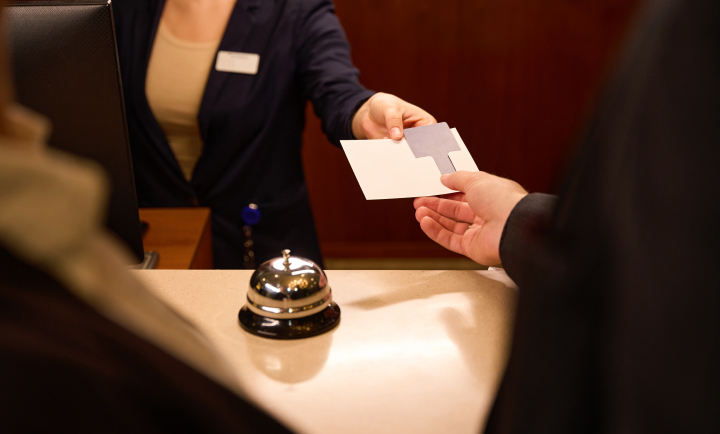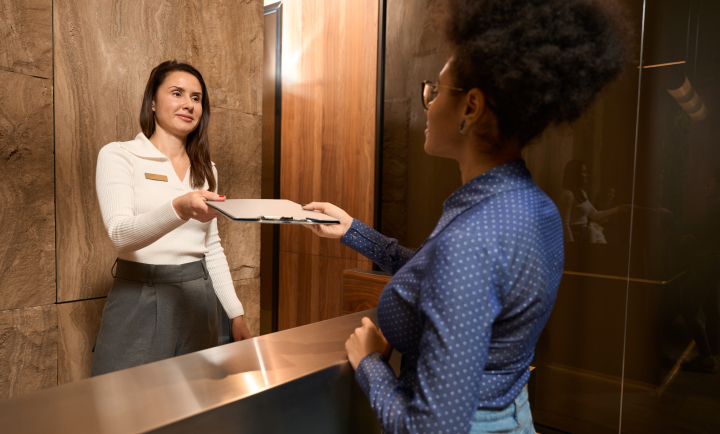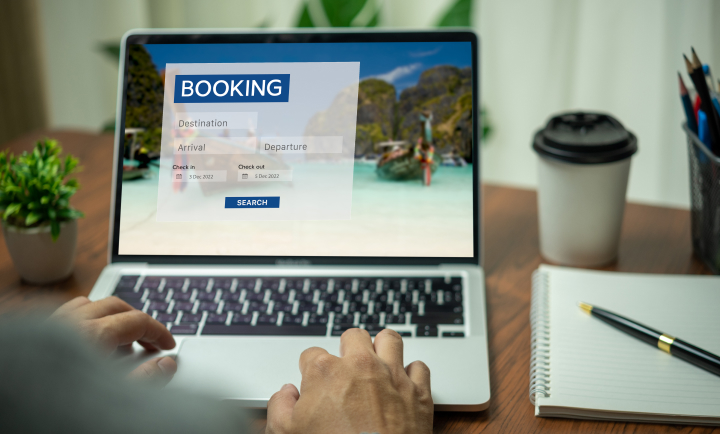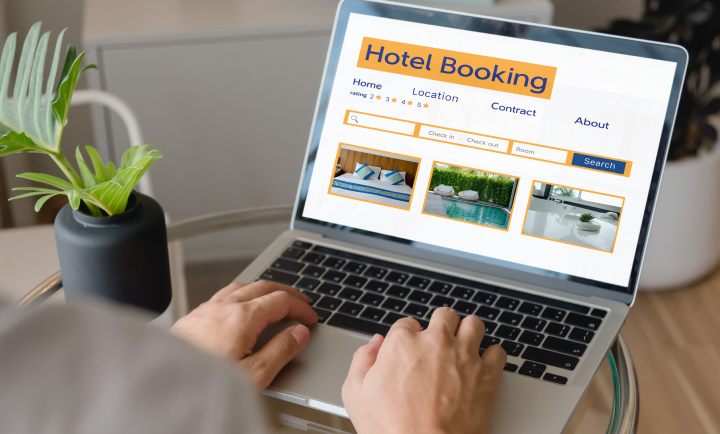
Booking a hotel is a straightforward task that requires thorough research which many holiday travellers fail to carry out and unknowingly fall into common traps they could have avoided.
They end up accruing extra costs, missing out on better deals, or having an overall bad holiday experience. All these happen as a result of either a lack of research or rushing through the reservation process without noting important details.
To make your next holiday hotel booking mistakes free, we will explore the most common hotel booking mistakes travellers make and offer practical advice on how to avoid them to ensure your next holiday accommodation is worth every amount spent.
Mistakes to avoid when booking a hotel
Here are some common mistakes to look out for when booking a hotel for a holiday stay.
- Booking too far in advance or too Last-Minute

When it comes to booking hotel rooms, timing is important – this will help you get the best rate. Booking too far in advance can mean missing out on deals while waiting until the last minute may lead to overpaying for limited availability.
This usually happens as hotels often release rooms and deals at favourable times, which means while you book in advance to avoid last minute booking rush, you can end up being locked into a higher rate and miss out on better deals hotels release that are closer to your travel dates to fill empty rooms.
However, on the other hand, waiting until the last minute could mean missing out on hotel availability altogether. But this varies depending on the time of the year–either a peak or off-peak season. To be on the safe side, research the most favourable booking window for your holiday destination.
If you are heading to a popular tourist destination, booking in advance will secure you the best rates. But booking a last-minute hotel for a less popular tourist spot could mean you are at an advantage and save significant costs.
2. Making a reservation for the wrong hotel – Beware of an imposter!

Nowadays, fake hotel booking websites are becoming rampant, misleading travellers into booking non-existent rooms or at inflated rates. But that’s not the only imposter you should worry about, some hotels make use of misleading names and location descriptions which could lead to you booking a hotel you are not interested in.
Imposter websites can look nearly identical to legitimate hotel sites, leading travellers to make bookings on fraudulent platforms. These sites might charge hidden fees or even steal your personal information, leaving you without a valid reservation.
The ones in the wrong location could mean you intend for a centrally located hotel with the hotel description “close to downtown” however the hotel is just 30 minutes walk away from the airport.
To avoid being a victim of an imposter hotel website or misleading location, ensure to always verify the URL of the website (look for “https” rather than “http” and official logos), and if in doubt, contact the hotel directly before booking.
For added measures, always check the location of the hotel you are booking – enter the hotel address into the map to be sure of the hotel’s distance to popular attraction centres and public transportation. Lastly, always book through trusted websites or directly through the hotel’s official page.
3. Not Checking Reviews

Checking hotel reviews before booking will give you a better insight into the reality of the hotel. However, most holiday travellers overlook this and solely rely on the hotel’s website descriptions which can be misleading.
Most hotels always put up a good front on their booking website to attract unknowingly travellers. But guest reviews will offer you unfiltered insights into cleanliness, customer service, noise levels, and overall experience. Particularly pay attention to recurring themes in reviews—whether positive or negative.
But remember that reading reviews can also be tricky, you want to ensure you have enough information on how the hotel operates. While browsing through the reviews, be suspicious of over-the-top review praises – the rule of knowing the best review is to leave out the 5 stars they are possible fans and skip the 1 star they are mostly anti-fans/nitpickers.
Be inclined to 4 and 3-star reviews they are more logical and less emotional in their reviews. If you are still unsure of the hotel despite the reviews, check out websites like TripAdvisor or Google Reviews to get a clearer picture and review of the hotel.
4. Booking Non-Refundable Rates

Booking a non-refundable rate could look like a good measure to save money on your holiday accommodation, but it could be otherwise if your plans become flexible or at any point require adjustments.
Life is unpredictable. You might get sick, face travel delays, or need to reschedule your trip. Booking a non-refundable rate leaves no room for changes or cancellations, and the money is lost if you cannot go ahead with your previous schedule.
We all agree booking a refundable rate is cheaper – a couple of pounds less than the standard rates. But we can also agree that pinching a couple of pounds will not eventually be worth it if you have a real emergency that needs your trip to be on hold.
So the best thing you can do for yourself without losing money is to pay slightly more to have more flexible booking options when possible. While non-refundable rates can save you money upfront, the risk of losing the entire payment often outweighs the savings.
5. Ignoring Cancellation Policy

Plans change – Travel plans can also change unexpectedly, and not reviewing a hotel’s cancellation policy can lead to financial losses if you are unable to follow through with your booking. Hotels have varying cancellation policies, while some allow for free cancellations up to 24 hours before your stay, some others impose strict no-cancellation or limited refund policies.
Failure to understand these policies can lead to hefty fees or the loss of your entire payment if you cancel or alter your reservation. So it’s important to understand these policies in advance before booking your hotel, especially if you have uncertain plans. Opt for refundable or flexible options where possible, even if they are the more costlier option.
6. Not checking for Hidden fees

Hotels often present their room rates attractively on booking platforms, but the total cost can be significantly higher once hidden fees are factored in. These fees can include resort fees, parking charges, Wi-Fi access, early check-in/late check-out fees, and service charges.
Many travellers are caught off guard when they arrive at their hotel and realize that the final bill is far higher than they expected due to hidden fees. Resort fees, which could range from £10 to £50 per day, are often not included in the advertised price and can dramatically increase the total cost of your stay. Similarly, parking fees in major cities can be steep, especially if you have no other transportation options.
So it’s important to ensure that before booking, you read the fine print on the hotel’s website and third-party booking platforms to ensure you understand all potential fees. It’s also a good idea to call the hotel directly to confirm any additional costs.
7. Booking at the Wrong time

Timing is everything when booking hotels. Failing to research local events, holidays, or peak seasons can lead to inflated prices and a crowded experience.
Hotel rates can spike dramatically during popular holidays or events. Likewise, peak season travel means crowded hotels, fewer available amenities, and a less pleasant overall experience. While there is no best time to book a holiday, to be on the safe side, consider factors like; location, season(off-peak or peak), and time of the year(winter, summer, or spring).
Considering all these will make it easy to choose the right booking time. You should also take into consideration the rule of thumb of booking for any holiday–book at least 21 days before your departure date but if you will be travelling to a popular location, you could consider 40 days before departure.
8. Not Double-checking Hotel Amenities
Failing to confirm the availability of essential amenities, such as air conditioning, breakfast, or shuttle services, can lead to unpleasant surprises upon arrival. Sometimes, what’s advertised on booking sites may not reflect reality.
Missing a hotel amenity or two can make or break a trip. While some guests prioritize a well-equipped gym or spa, others may need a reliable shuttle service to the airport or free breakfast to start their day. This could become an issue when you misunderstand or overlook the fine print on the hotel amenities. You will eventually become disappointed when you find that your hotel does not offer what you expected.
Imagine booking a stay in the Caribbean, assuming the hotel had a beachfront location based on hotel photos on the booking site. Upon arrival, you found out that the beach was a 10-minute walk away, and the hotel didn’t offer a shuttle. Imagine your disappointment – your holiday is already mentally and emotionally ruined.
Therefore, before booking, thoroughly review the list of amenities offered by the hotel. Cross-reference customer reviews to see if the services and facilities are accurately described. If any essential amenities (like air conditioning or parking) are a priority, it’s best to confirm their availability directly with the hotel.
9. Not booking directly through the Hotel

Third-party booking platforms like Expedia or Booking.com are popular because they aggregate rates from multiple hotels, making comparison shopping easier. However, booking directly with the hotel often provides better rates, perks, and flexibility.
Booking directly through a hotel’s official website can sometimes provide access to exclusive deals, loyalty points, or perks like free breakfast, parking, or Wi-Fi. Additionally, in case of any booking issues, it’s easier to resolve them when dealing directly with the hotel rather than through a third-party booking platform, which can involve more complicated processes.
While third-party booking sites offer convenience, always check the hotel’s official website to see if they have price-matching guarantees or exclusive deals. Booking directly can also make it easier to modify your reservation and take advantage of loyalty programs.
10. Not signing up for the Hotel Loyalty Program

Many hotels offer loyalty programs that reward frequent guests with benefits such as free nights, room upgrades, late check-outs, and discounted stays. Not taking advantage of these programs is a missed opportunity for regular travellers.
Hotel loyalty programs allow members to accumulate points with every stay. These points can be redeemed for future free nights, upgrades, or other perks. Business travellers or frequent leisure travellers can quickly accumulate enough points to earn free stays, special services, or even VIP treatment.
Always sign up for hotel loyalty programs, especially if you regularly stay at hotels. These programs are typically free and offer long-term benefits that can enhance your travel experience. Even if you don’t travel frequently, you can often accumulate points through partnerships with airlines or credit card reward programs.
11. Skipping travel insurance

Many travellers neglect to purchase travel insurance, thinking it’s unnecessary or an added expense. However, travel insurance can cover unforeseen issues like cancelled trips, lost luggage, medical emergencies, or even hotel cancellations.
Travel insurance provides peace of mind by covering unexpected events that could ruin your trip or lead to significant financial loss. Medical emergencies, trip cancellations, or interruptions due to unforeseen circumstances (like natural disasters or political instability) can be costly without insurance. Some policies also cover hotel cancellations or trip interruptions due to illness or emergencies.
Imagine you booked a two-week stay in Italy and had to cancel the trip at the last minute due to a family emergency. But you do not have travel insurance, which led to you losing the entire cost of your non-refundable hotel booking. However, if you had signed up for travel insurance, your insurance would have reimbursed your holiday cost of cancelled hotel and flights.
This is one of the reasons you should consider investing in travel insurance, especially for long or expensive trips. Ensure your policy covers hotel cancellations, medical emergencies, and trip interruptions. Many credit cards also offer complimentary travel insurance if you use them to book your trip.
12. Not ensuring there’s a reliable WiFi

Ensuring reliable Wi-Fi is a necessity, especially for business travellers, remote workers, or those who rely on constant connectivity. Booking without checking this can lead to frustration.
In many hotels, Wi-Fi is either unavailable in certain areas, costs extra, or the speeds are too slow to be functional, especially during peak usage times. Business travellers, in particular, need fast and reliable Wi-Fi for meetings, work, or even basic email access.
Always check if the hotel offers free Wi-Fi in the rooms, the speed, and if there are additional charges for it. Customer reviews often give insights into how reliable and fast the internet connection is.
13. Not opting for an Upgrade

Upgrades are often easier to get than most travelers think especially during off-peak seasons or when you book directly with the hotel. A slightly higher rate can land you in a superior room with added benefits.
Most travellers assume upgrades are expensive or only for loyalty program members. However, many hotels are willing to upgrade your room for a small fee or even for free, particularly if you ask politely at check-in or book during less busy times.
For illustration, upgrading from a standard room to one with a better view or an extra space may only cost you £20 more per night. During off-peak seasons or midweek stays, hotels are more willing to upgrade guests to higher-tier rooms at little to no additional cost.
It doesn’t hurt to ask for an upgrade. Politeness, special occasions (birthdays, anniversaries), or even being part of a hotel’s loyalty program can significantly improve your stay.
14. Not Comparing Prices
Failing to shop around could cost you more money than you think. Hotel prices vary across different booking platforms, and taking the time to compare can save you a significant dip in your holiday budget.
Many travellers book directly through a hotel’s website or the first booking platform they find. However, you can use Do!Calla comparison tools or other popular tools like; Kayak, Trivago, or Google Hotel Finder these tools will provide you with better deals and you also experience price transparency.
Sometimes, hotels even offer better rates for direct bookings via phone or email. Use comparison tools to cross-check prices across multiple platforms before booking. Also, keep an eye out for any hidden fees that may not be included in the base rate.
15. Not Booking with a Credit Card

Credit cards typically offer benefits like rewards, fraud protection, and travel insurance, which debit cards or cash do not offer. Booking with a credit card also makes it easier to handle disputes.
Credit card companies often offer points or cashback for travel-related purchases, which can save money in the long run. Also, using a credit card protects you in case of disputes or fraud. Hotels sometimes place holds on your account for incidentals, which may tie up funds if using a debit card.
If you book a hotel that turns out to be a scam, disputing the charges with a credit card is much easier and quicker than trying to resolve issues with a debit card or cash. Use a credit card to book hotel stays to take advantage of points, fraud protection, and other travel-related benefits.
16. Not Questioning why a room is Cheap
Discounted hotel rooms can be tempting, but they may come with trade-offs that could impact your overall stay. It’s important to understand why the rate is lower than others.
You should be suspicious when a room is cheaper than the standard price. Cheap rooms indicate compromises such as poor location, outdated amenities, smaller space, or hidden costs. Sometimes, the hotel may be undergoing renovations, leading to noise and limited access to certain facilities.
Let’s say a room is priced at £50/night while others in the area are £100. Upon arrival, you realize it’s situated next to a construction site, or it’s far from any tourist attractions or public transport. Hidden fees like resort or parking charges may also not be included in the advertised price.
Don’t be tempted by price alone. Look deeper into why the rate is low, and read reviews to ensure you know what you are getting into.
17. Forgetting to Double-check your Booking Confirmation.

Mistakes happen, but avoid making mistakes when it comes to your hotel booking. This is why it’s important to double-check your booking confirmation.
Any mistake during the booking process can lead to issues like incorrect dates, the wrong room type, or even missed reservations altogether. Failing to double-check the confirmation email or booking details can leave you without a place to stay or result in unnecessary extra costs.
It’s easy to make an error when entering details like dates, room preferences, or the number of guests. If you do not catch these errors early, you may arrive at your hotel only to find that your reservation is not valid or the room is not what you expected. Worse, some hotels may not offer refunds or allow changes if the booking is non-refundable.
Always carefully review your booking confirmation for accuracy. Ensure that your travel dates, room preferences, and guest information are correct. If you notice an error, contact the hotel or booking platform immediately to rectify the issue.
18. Not Reading Reservation Fine Print

One of the most common mistakes travellers make when booking hotels is not thoroughly reading the terms and conditions or fine print that comes with their reservations.
Hotel reservation prints usually include important details about cancellation policies, check-in/check-out times, parking fees, payment methods, security deposits, and additional charges or other stipulations that could affect your stay. You need to check to be aware of this information. Not reading these details can lead to misunderstandings, unanticipated costs, or other inconveniences.
Imagine booking a hotel room, without realising that there is a strict check-in time of 3 p.m. But you are unaware of this because you didn’t read your reservation fine print and you are forced to wait several hours before being able to access your room.
Always take the time to carefully read the fine print before finalising your booking. If something is unclear, contact the hotel directly to ask questions. Ensure you understand any additional charges, check-in policies, and the hotel’s rules to avoid unwelcome surprises.
Conclusion
While booking a hotel is a simple task, the process is filled with potential mistakes that can easily turn your holiday into a nightmarish experience. These mistakes stem from overlooking essential details like; cancellation policies, hidden fees, booking the wrong hotels, or not reading reviews.
However, by being mindful of the booking errors outlined in this guide, you can avoid the unnecessary situations that could accompany it. No matter the type of holiday you are looking to book, take your time to carefully consider each step of the process — from researching hotel locations to understanding your payment and cancellation options – this will assure you a smooth stay.
Also, avoiding these mistakes will save you money, improve your travel experience, and provide peace of mind at your holiday accommodation.